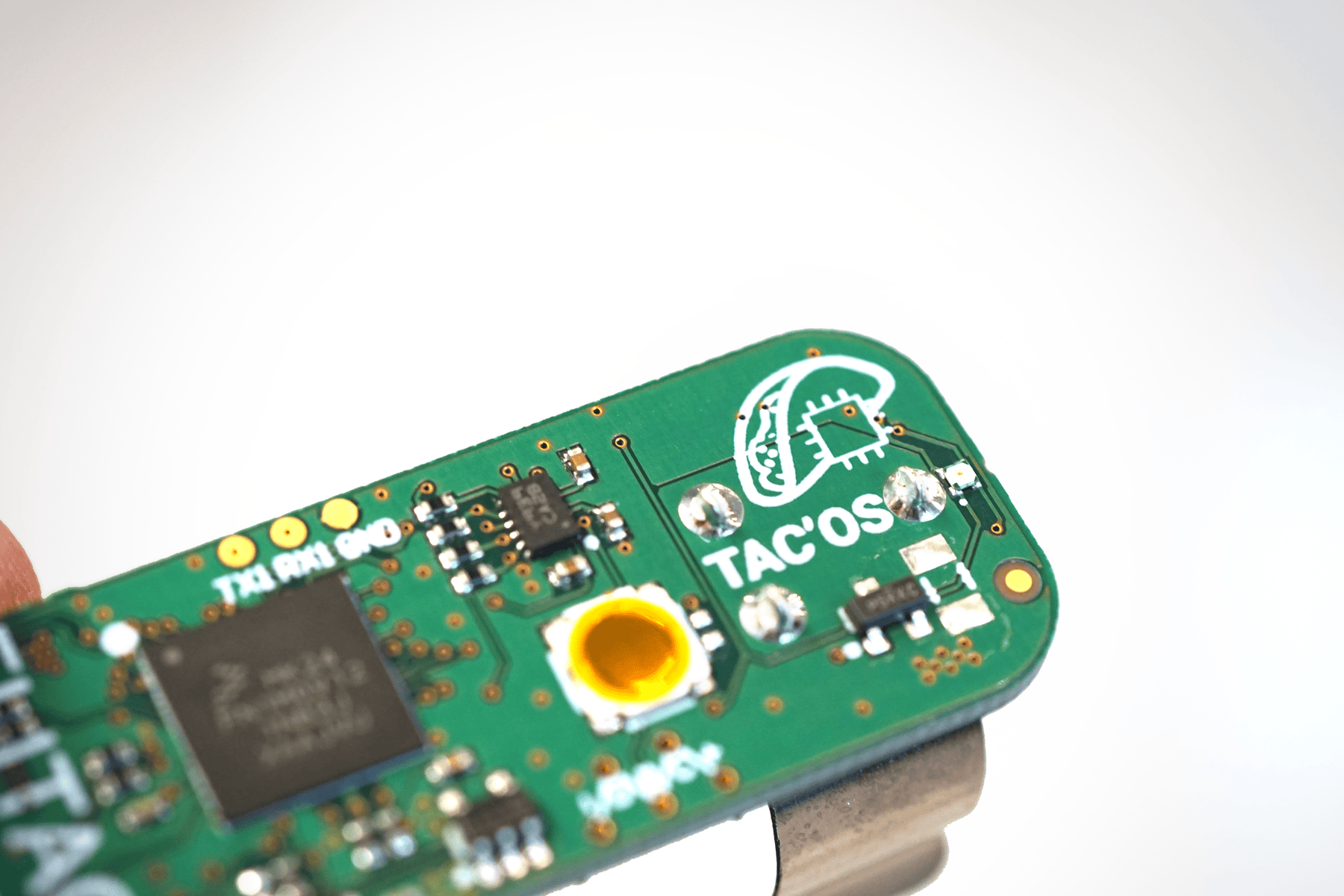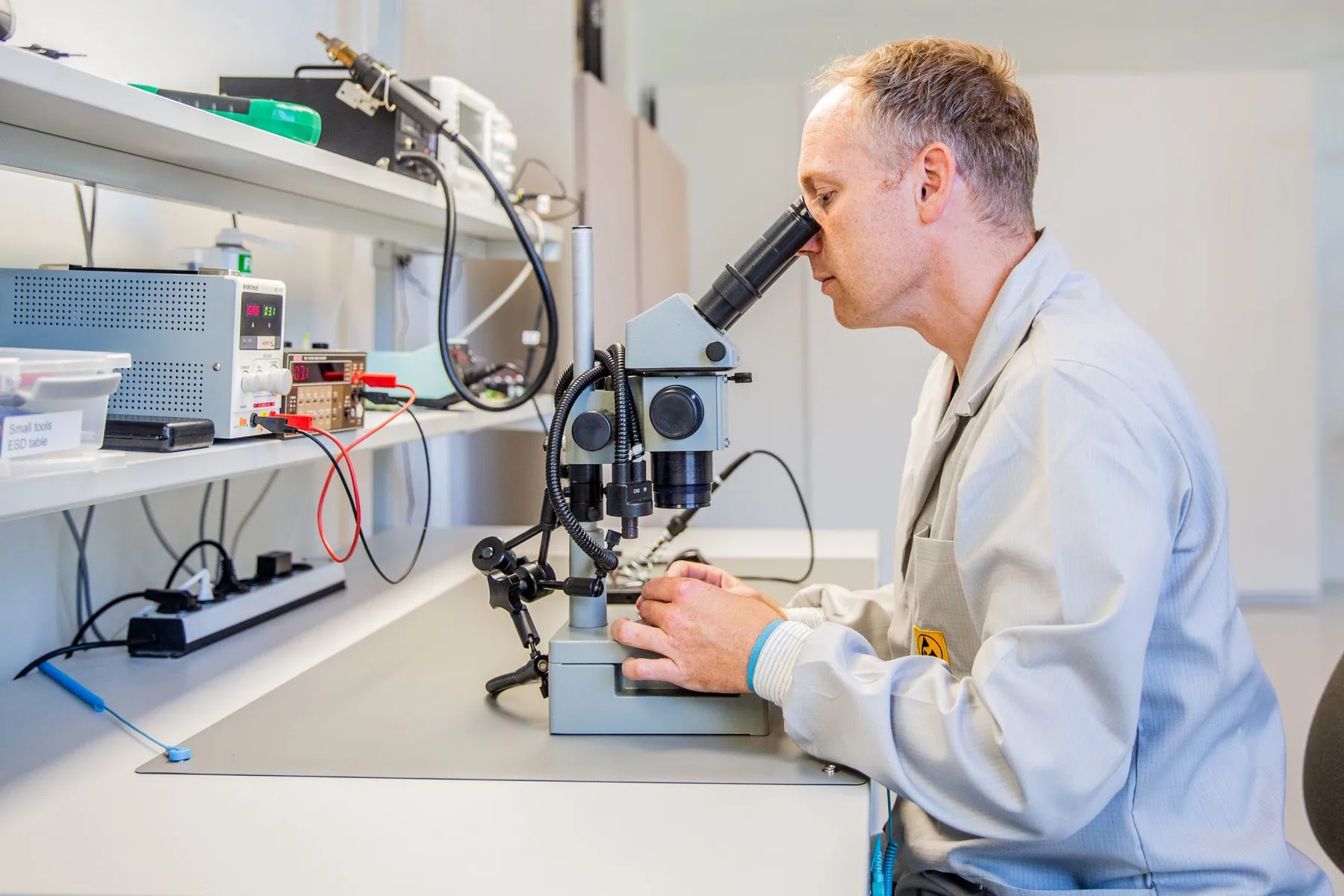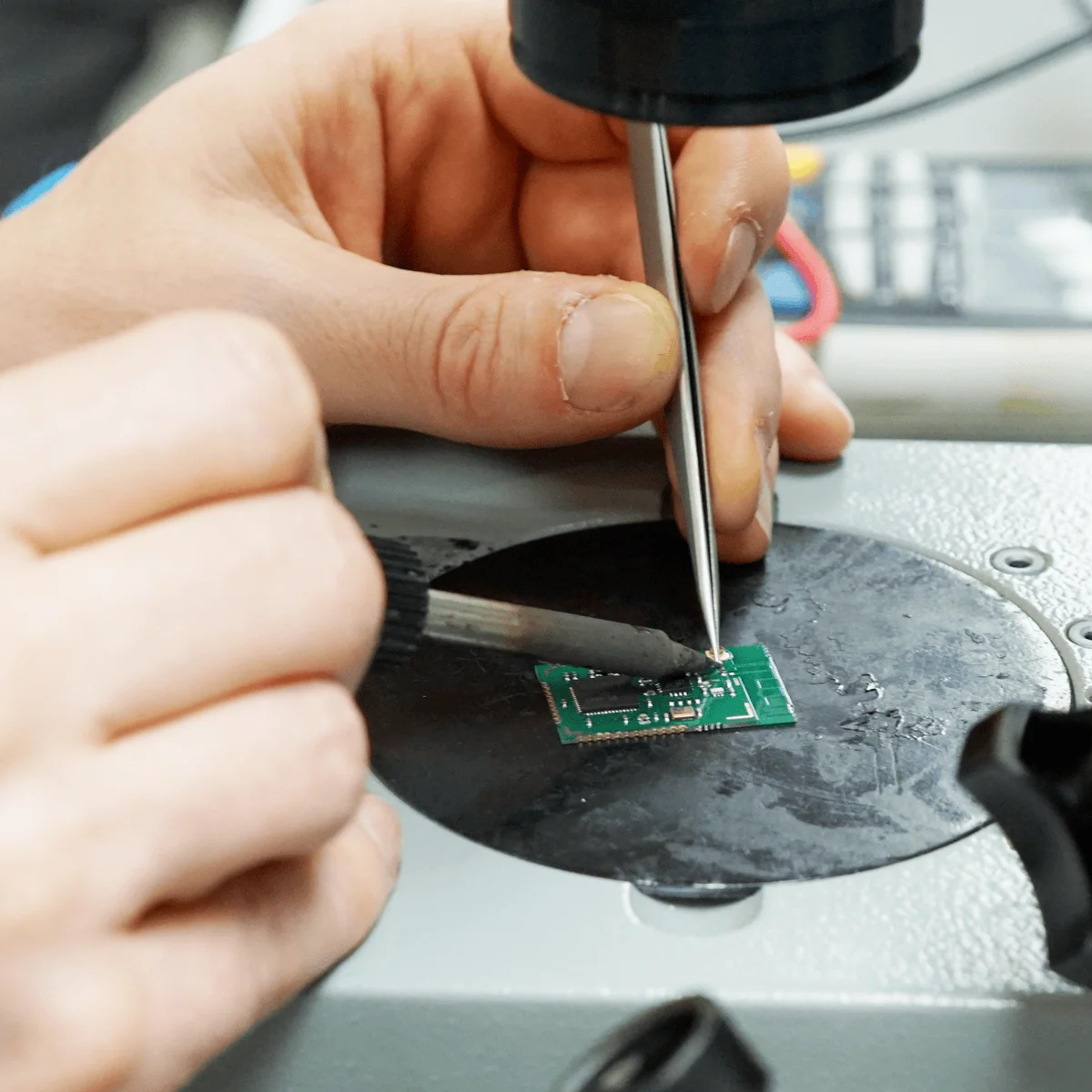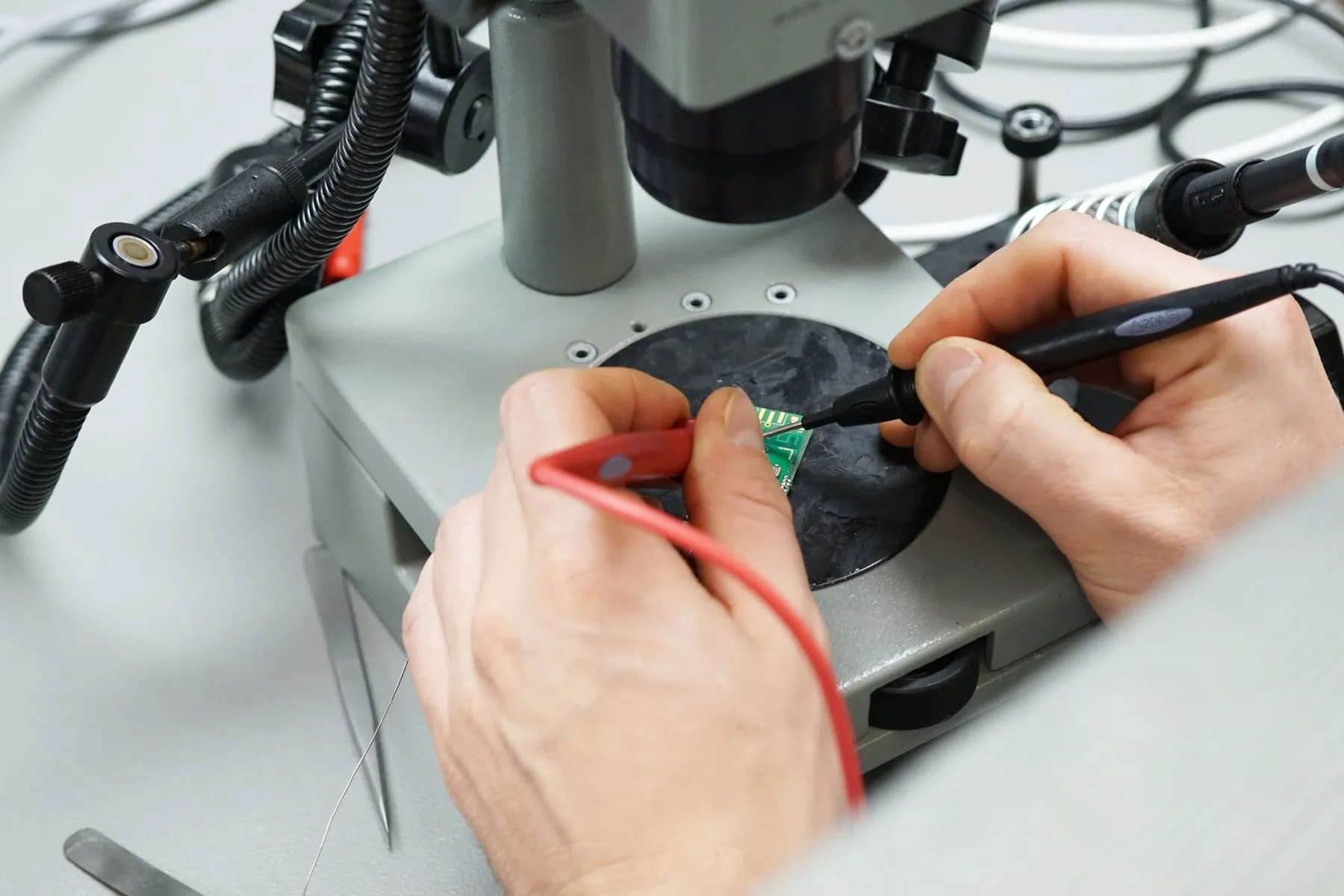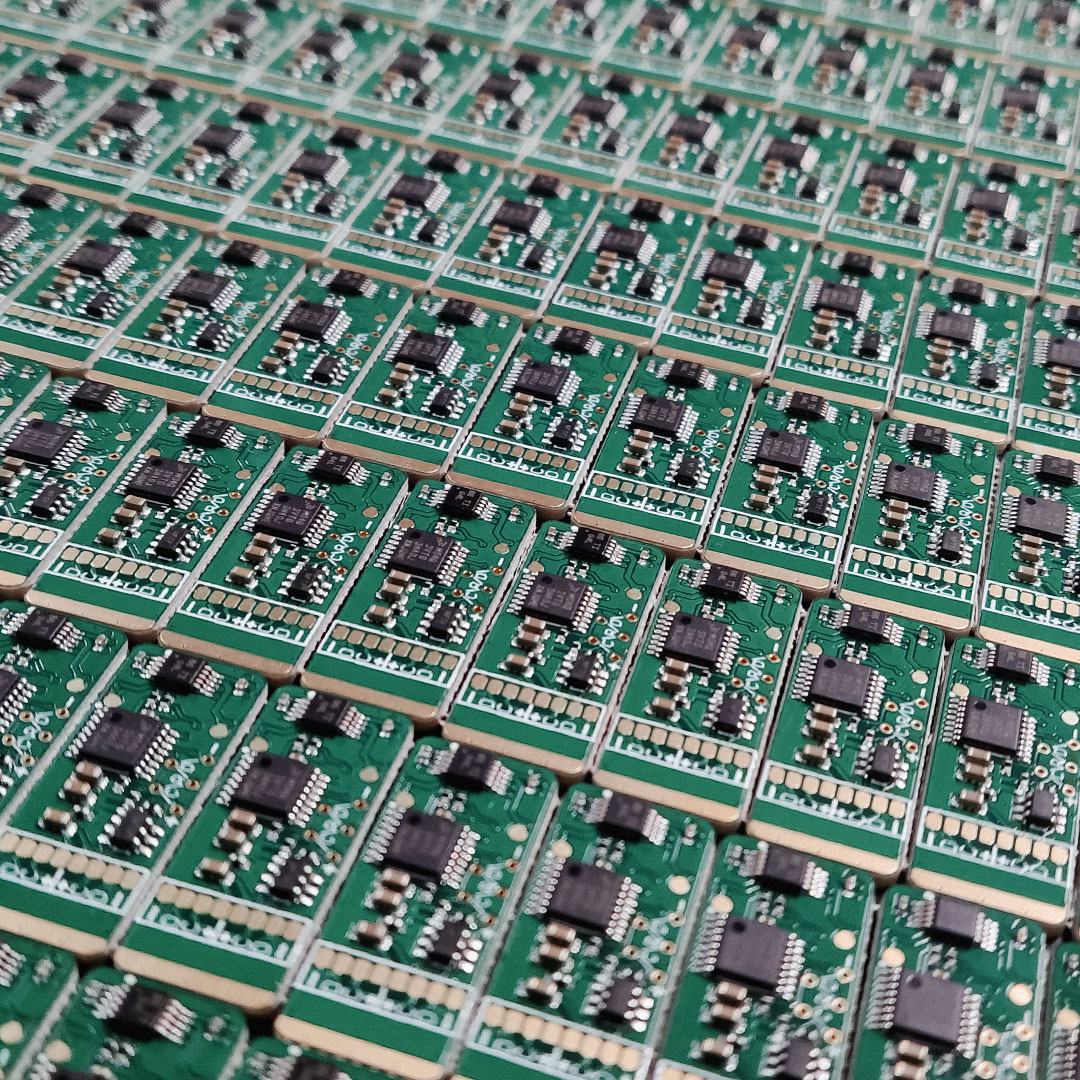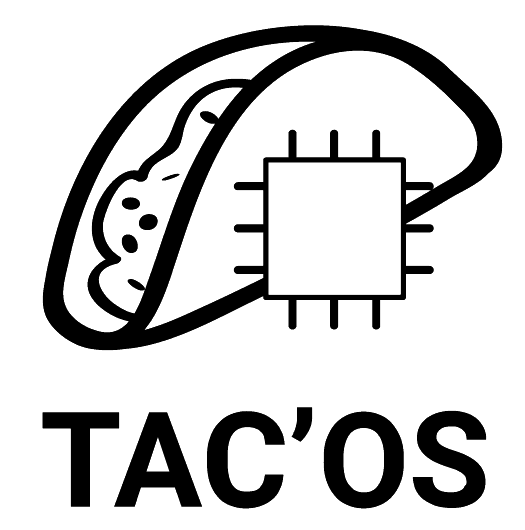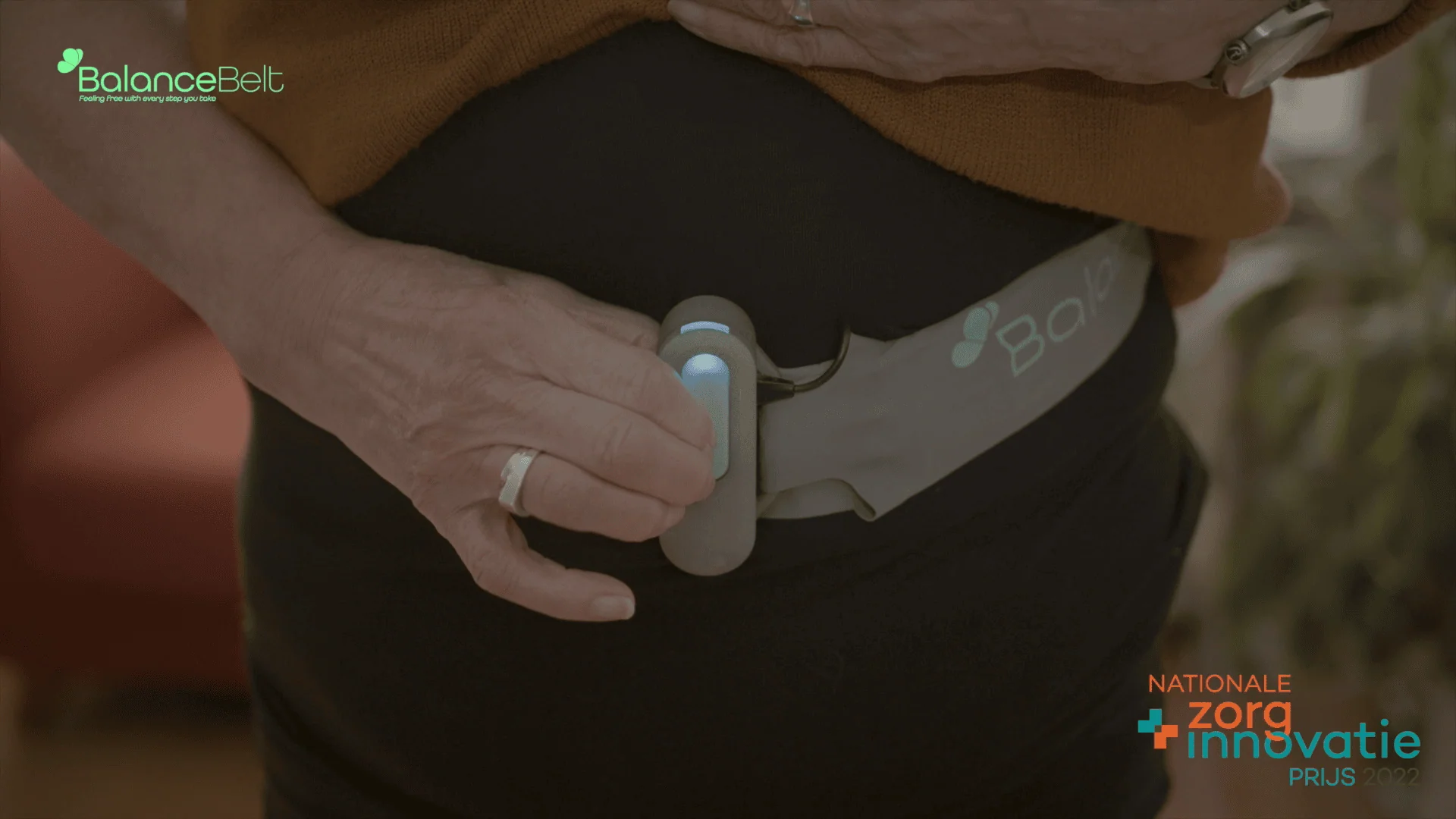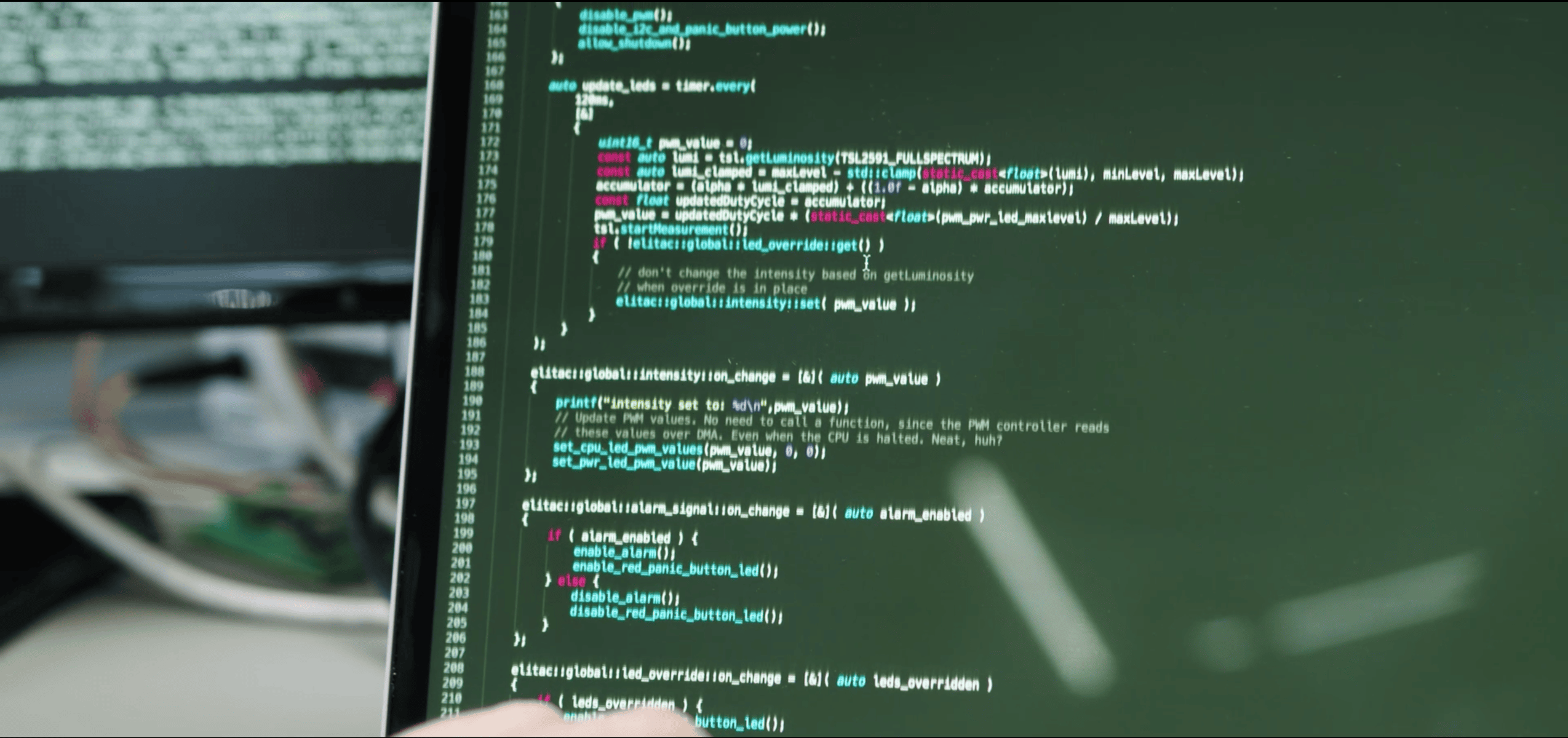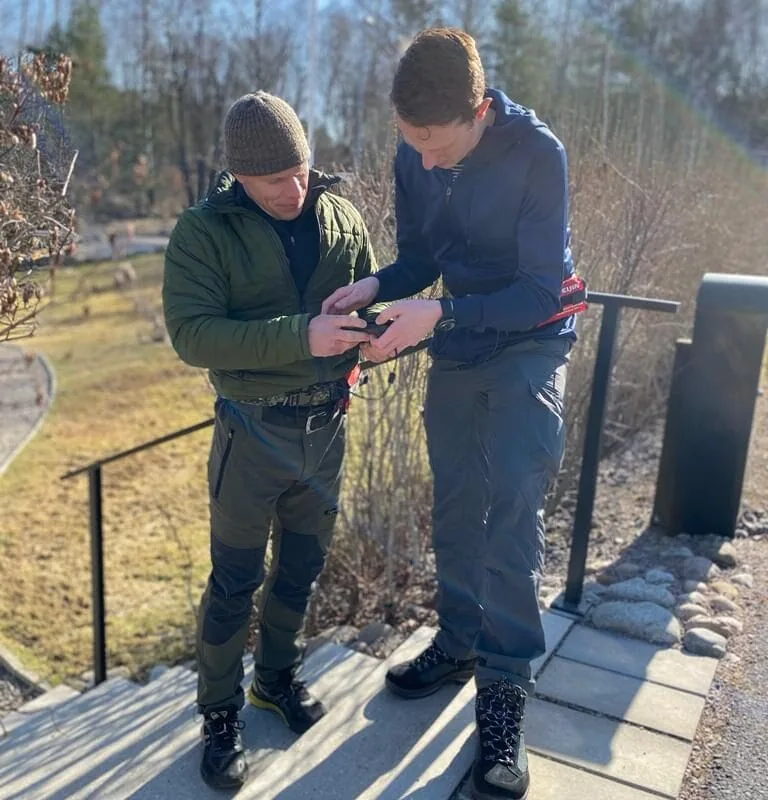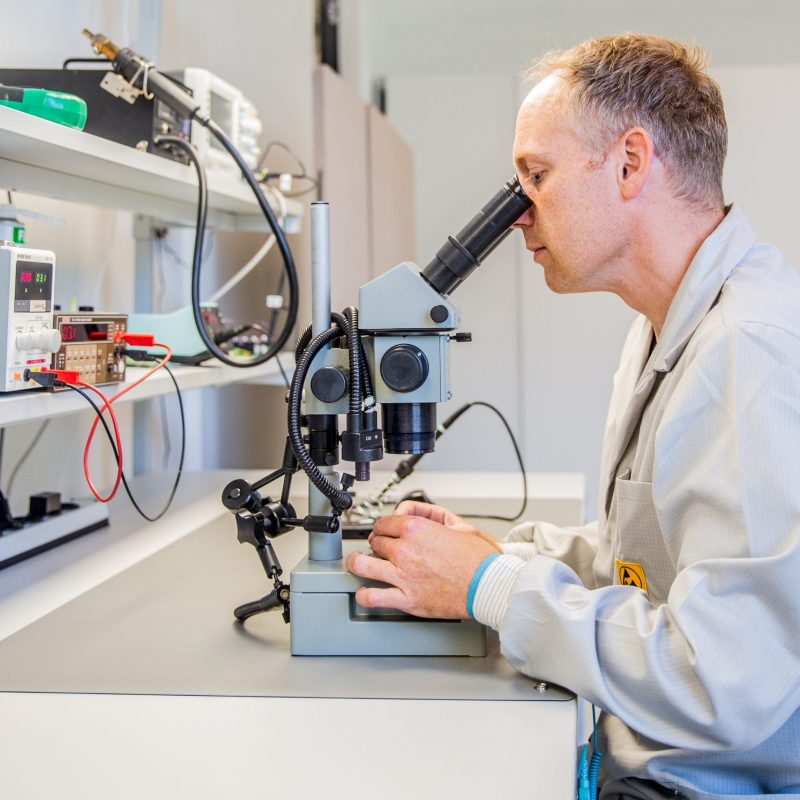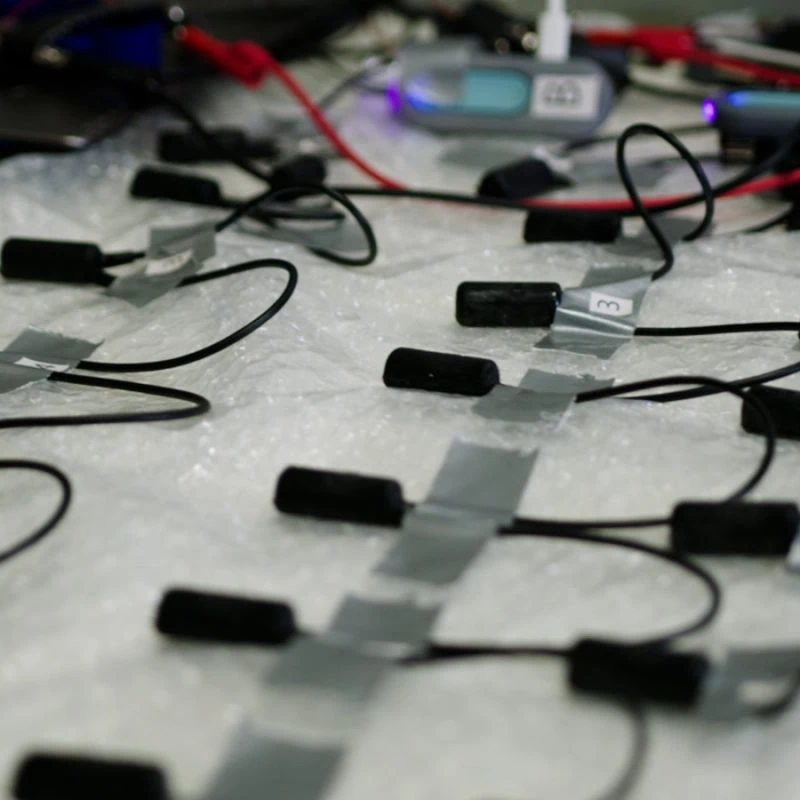Hardware & software design for wearables
Hardware design
Our hardware developers have different backgrounds, ranging from biomechanical engineering, electronics engineering, and human factors & haptic feedback research & development. What they have in common is the experience of hardware & software design for wearables, including the seamless integration of their hardware components into wearable products.
However, integrating hardware and sensors into wearables involves balancing complex issues, like elasticity, waterproofing, washability, and manufacturing possibilities. But also, achieving static placement on mobile people, preventing interference from movement and the skin’s electrical field, etc.
At Elitac Wearables, we have over 45 years’ combined experience developing wearables with integrated sensors. These range from complex health and bio-sensors (e.g. Flight Sense System), motion sensors (Mission Navigation Belt), accelerometers (BalanceBelt), light sensors (SmartShoulder), stretch sensors (SmartShirt), to gas sensors and more. We can therefore advise our development partners on the most efficient and cost-effective way to integrate sensors into their wearable.
Software design
Our software developers are jacks of all trades: they can code quick-and-dirty code, such as Arduino, for mockups and Proof of Concept prototyping. But as soon as the requirements start to take shape in the form of a Minimal Viable Product (MVP), they will start to write reliable and releasable code.
They are not afraid to test their own creations and enter into the field neither. Our software developers actually go along on our field tests to test and improve the functioning and usability of our wearables.
At Elitac Wearables, we have developed our propriety software called TacOS (short for Tactile Operating System), custom-made for wearable development. It allows for faster, cheaper, and smaller (microchip size) product development.
Prototyping, Testing & Validation
Because we aim to develop wearables from idea to market-ready product, we focus on developing wearables that are fit for purpose, durable and have great signal quality. Therefore we put effort into prototyping, testing, and validation, to make sure the development adds value to our client. For example we:
- Take your concept and turn it from an idea into a functional prototype fast (e.g. Haptic Sleeve).
- Turn your prototype hardware and software into a market-ready, reliable product for real-world applications, (e.g. Danu Sports Smart Sock).
- Explore and validate new applications for existing technologies and/or wearables, (e.g. BEAT-IT).
- Innovate electronics and textile integration techniques for future wearables (e.g. Weafing project).
Contact us
Contact us to find out how we can help you to develop your wearable product
Intrigued to work in the wearables industry?
Do you want to improve people’s lives with your engineering skills? We are always on the lookout for talent. Especially for Hardware and Software developers.
Check out our career site and let’s get in touch!

